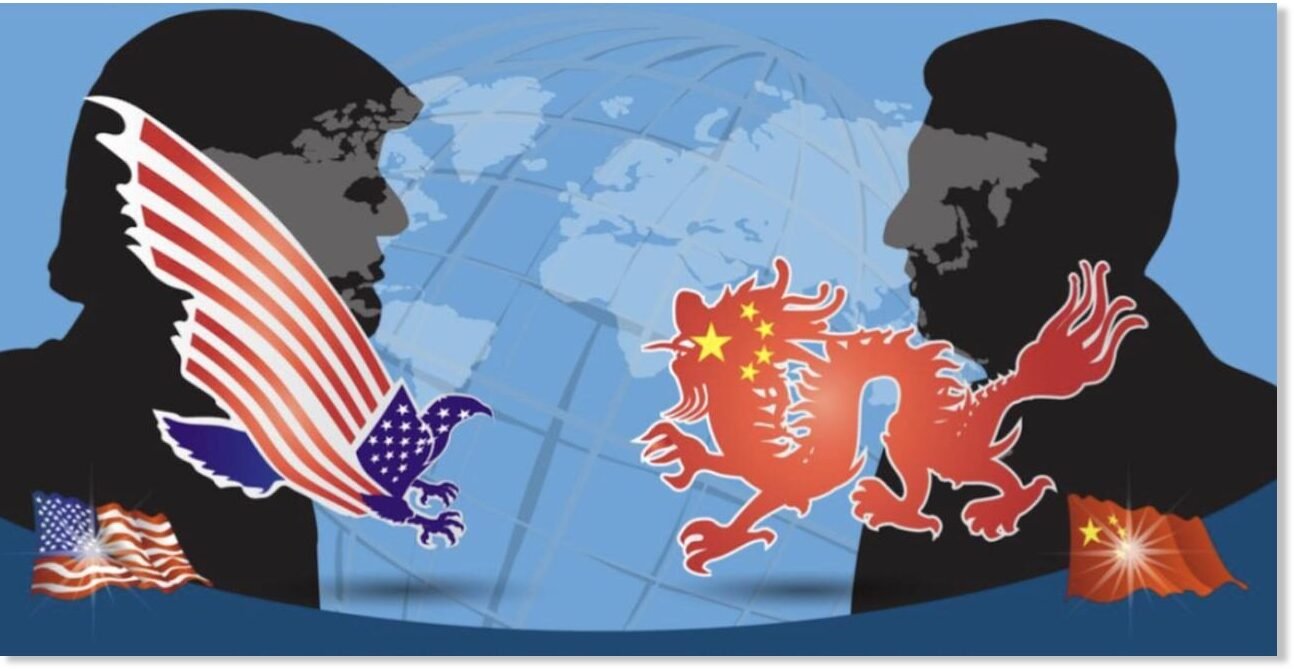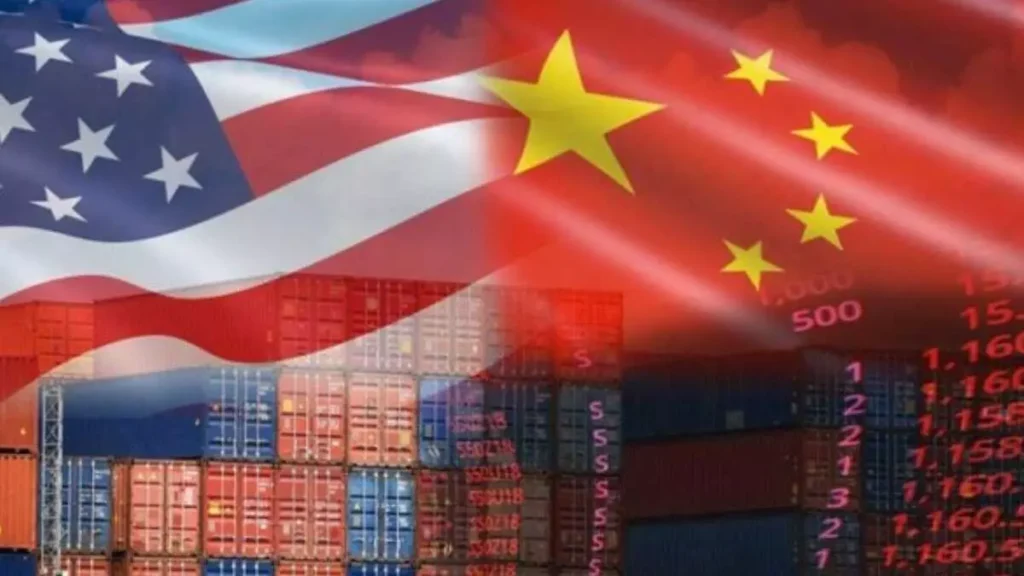The market for Cryptocurrencies has seen more volatility recently, usually responding to different political and economic developments. The revived trade tensions between the United States and China have been one of the most important elements influencing this waversing market.
These conflicts have caused market instability that has resulted in both market corrections and rallies in many different sectors, including digital assets. The effects on the worldwide economy and the crypto market have been significant as the two biggest economies in the world struggle with trade conflicts.
US-China Trade Relations: Tensions, Policies, and Global Impact
Global economic interest has always come from trade ties between the US and China. Both of the two countries are major participants in world trade and their policies have often far-reaching effects. Trade negotiations over the past few years have swung between collaboration and hostility; the trade war between these two economic titans peaked in 2018. Notwithstanding a “Phase One” trade agreement in early 2020, tensions have persisted since fresh problems including tariffs, intellectual property conflicts, and technology bans keep surface.
 Particularly in relation to its trade surplus and policies deemed unfair, the US government has been progressively critical of China’s economic policies. China, on the other hand, has responded by tightening its posture on several issues in an effort to establish itself as a top worldwide power in manufacturing and technology among other spheres.
Particularly in relation to its trade surplus and policies deemed unfair, the US government has been progressively critical of China’s economic policies. China, on the other hand, has responded by tightening its posture on several issues in an effort to establish itself as a top worldwide power in manufacturing and technology among other spheres.
Impact of Geopolitical Tensions on Global Markets and Cryptocurrencie
Changes in trade policies between these superpowers will be felt in global financial markets. Such changes are especially prone to affect stock markets all around since investors worry about possible effects on corporate profitability and worldwide supply chains. Not an exception are cryptocurrencies, which have lately come under more and more view as alternative assets.
When major geopolitical events transpire, cryptocurrencies including Bitcoin (BTC), Ethereum (ETH), and a variety of altcoins often respond in concert with conventional markets. This is justified by the developing link between the crypto markets and conventional banking. No more are institutional investors just onlookers in the realm of digital assets; many of their portfolios incorporate stocks as well as cryptocurrencies. For this reason, when tensions between the US and China grow,
Impact of US-China Trade Conflicts on Crypto and Markets
Trade conflicts generate a climate of uncertainty and anxiety especially involving two of the biggest economies in the world. This psychological milieu sometimes results in market responses motivated more by feeling than by basic value. This drives more volatility in crypto markets as values swing dramatically in response to news on the US-China trade war. While a high-risk, high-reward asset class, cryptocurrencies could also be seen by investors as a hedge against conventional market volatility.
Standard fiat currencies like the US dollar might undergo notable swings when US-China conflict rises. This volatility can inspire investors to swarm supposed “safe haven” assets.
Blockchain’s Role in Mitigating Geopolitical and Economic Risks
The foundation of cryptocurrencies, blockchain technology, has possible benefits even in times of geopolitical crisis Blockchain runs distributed unlike conventional financial systems, which depend on centralized institutions and government control. This implies that it is less prone to policy changes by any one country, including those of the US and China. Blockchain technology’s distributed character appeals especially to investors trying to reduce risk in conventional financial systems as trade tensions rise.
Furthermore appealing in areas where economic uncertainty and corruption are issues is blockchain’s immutability and openness. The demand in distributed financial technology may increase as the US and China fight trade conflicts, therefore supporting the crypto market.
Impact of Economic Fluctuations on Bitcoin and Ethereum
Some cryptocurrencies, especially Bitcoin and Ethereum, which have become somewhat well-known among institutional investors, are more sensitive to fluctuations in the economic situation. Being the most well-known cryptocurrency, Bitcoin is sometimes used as a bellwether for the whole crypto market. Trade conflicts among other global economic events greatly affect its price swings.
With smart contracts and a strong ecosystem of distributed apps (dApps), Ethereum also experiences the effects of trade concerns. Ethereum, the second-largest cryptocurrency by market value, is intimately related to the larger crypto ecosystem.
Rising Interest in Central Bank Digital Currencies (CBDCs
An additional interesting change is the increasing curiosity for central bank digital currencies (CBDCs). China and the US are investigating or are beginning to create their own digital currency. While the US Federal Reserve has been investigating the possibility for a digital dollar, China’s digital yuan (e-CNY) is already under testing. The crypto markets may be much changed by these government-backed digital currencies, especially if tensions between the two nations rise.
Though they differ from distributed cryptocurrencies, CBDCs mark a change in the financial system that might affect world commerce and Investments behavior. If governments employ CBDCs to increase control over digital transactions, their adoption could lower demand for conventional cryptocurrencies.
US-China Trade Impact on Bitcoin and Cryptocurrency Markets
Looking ahead, the interaction between US-China trade ties and the bitcoin markets will obviously keep changing.

With market attitude playing a major influence, cryptocurrencies may go through phases of both bullish and bearish activity as trade conflicts last. Adoption of blockchain technology and the growing institutional interest in digital assets help to give some market resilience; yet, the geopolitical concerns are not minor.
Final thoughts
The market for cryptocurrencies is still closely entwined with world economic events, and the revived US-China trade tensions highlight the vulnerability of digital assets to geopolitical considerations. Both nations are still involved in trade conflicts, hence market players have to keep constant attention to changes and modify their plans. Notwithstanding their volatility, cryptocurrencies remain rather important in the global financial ecosystem since they present both possibilities and problems.

